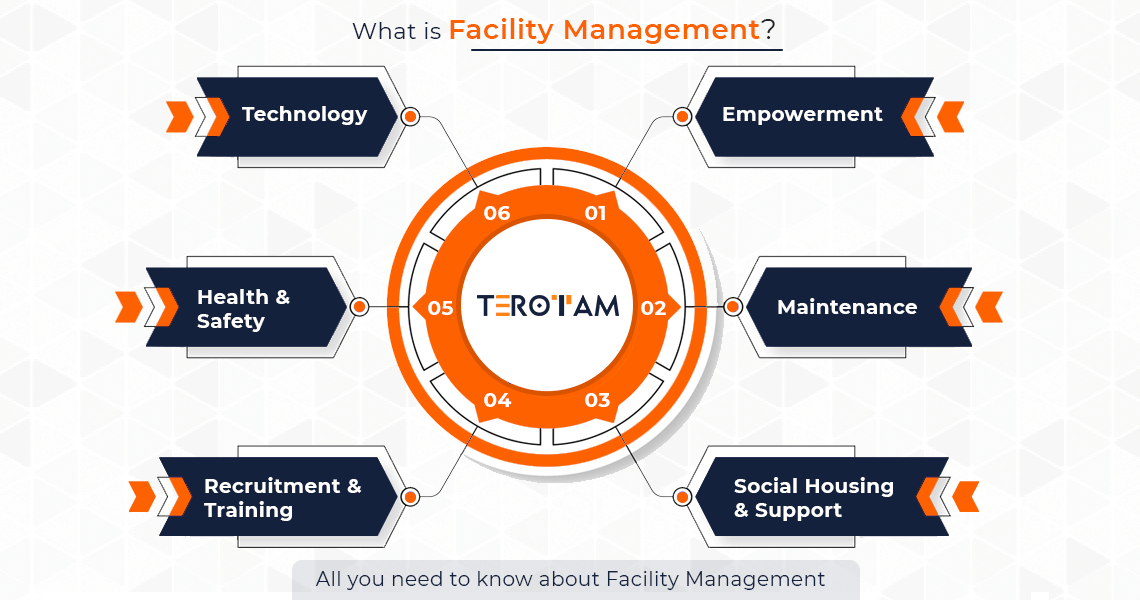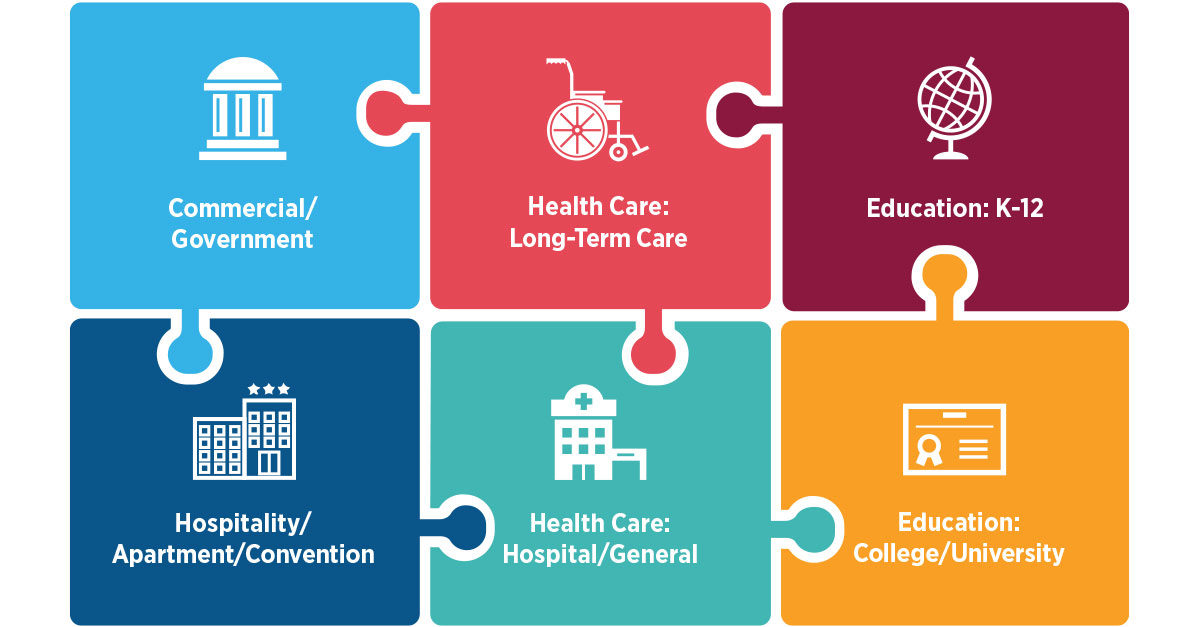Why Facility Management is Vital for Possession Longevity
Wiki Article
Key Trends Forming the Future of Center Monitoring in 2024
As we look in advance to 2024, the landscape of facility administration is positioned for substantial transformation, driven by a number of key fads. The integration of smart building modern technologies and a shift in the direction of data-driven decision-making guarantee to improve operational performance while prioritizing sustainability in technique.Smart Structure Technologies

Smart building modern technologies incorporate a broad range of systems, consisting of smart lighting, HVAC controls, and protection systems. By incorporating these systems, facility supervisors can keep track of and adjust criteria in real-time, resulting in significant decreases in energy waste and functional costs. For circumstances, wise sensors can find occupancy degrees and change lighting and temperature level accordingly, making certain that energy is just used when essential.
Additionally, these technologies facilitate enhanced information collection, allowing companies to track use patterns and determine possibilities for further enhancements. The implementation of wise structure innovations not only adds to sustainability goals however additionally develops much healthier workplace that can boost worker efficiency and fulfillment.
As we relocate right into 2024, the fostering of smart structure technologies will likely speed up, reflecting a broader change towards more intelligent, receptive, and sustainable center administration methods.
Data-Driven Decision Making
Increasingly, companies are leveraging data-driven decision making to improve facility administration techniques. By taking advantage of information analytics, center supervisors can obtain workable understandings that substantially enhance functional efficiency and source appropriation. The assimilation of innovative modern technologies, such as IoT sensing units and real-time surveillance systems, enables the collection of large amounts of information on building efficiency, occupancy rates, and energy usage.This wealth of details enables facility managers to determine patterns, predict maintenance demands, and proactively address problems before they rise. Anticipating analytics can anticipate equipment failings, reducing downtime and repair work expenses. In addition, information visualization tools assist in far better interaction among stakeholders, ensuring that notified choices are made collaboratively.
Additionally, data-driven methods boost critical planning by making it possible for center supervisors to analyze the efficiency of existing techniques and make educated options concerning investments in modern technology or facilities. As companies increasingly prioritize functional excellence, data-driven choice production is positioned to come to be a cornerstone of successful facility administration approaches in 2024 and past. Eventually, the capacity to leverage data properly will encourage organizations to create a lot more reliable, productive, and resilient facilities.
Sustainability and Environment-friendly Practices
The focus on data-driven decision making naturally aligns with the expanding concentrate on sustainability and green techniques within facility administration. As companies increasingly prioritize ecological responsibility, facility managers are leveraging analytics to enhance source usage, reduce waste, and minimize carbon impacts. This strategic browse this site strategy makes it read the article possible for the combination of energy-efficient systems, such as LED lights, clever HVAC controls, and eco-friendly power sources right into center procedures.Furthermore, the execution of lasting practices extends past energy intake. Facility supervisors are embracing environment-friendly products and promoting recycling initiatives to create a round economic situation within their facilities. This not only improves the environmental account of the company but additionally fosters a culture of sustainability amongst workers.
Conformity with ecological guidelines is another crucial facet driving the adoption of environment-friendly techniques. By utilizing information analytics, center supervisors can keep an eye on compliance metrics and determine locations for improvement, making certain adherence to regional and worldwide sustainability standards.
Hybrid Work Versions
A significant shift in the direction of crossbreed job models is reshaping the landscape of facility administration in 2024. This standard combines remote and in-office work, requiring a reevaluation of room utilization, source appropriation, and worker involvement methods. Organizations are increasingly acknowledging the value of adaptable offices that accommodate diverse needs and choices.Center supervisors should adapt by applying versatile workplace layouts that sustain collective efforts while giving areas for concentrated job. This includes the integration of modern technology to facilitate seamless interaction and collaboration among in-office and remote staff members. Smart building services, furnished with analytics and sensing units, enable real-time monitoring of space usage, making it possible for companies to optimize their settings effectively.
Moreover, hybrid work designs highlight the demand for reliable center management that prioritizes worker experience. This encompasses not only innovation and space style however additionally the development of policies that promote a well balanced work-life dynamic. As business navigate this transition, the duty of facility management ends up being pivotal in producing a nimble workplace that cultivates performance and drives business success. Basically, the hybrid work model is changing facility administration, urging an aggressive technique to meet the evolving needs of the workforce.
Boosted Owner Wellness
As organizations embrace hybrid job designs, a heightened focus on owner wellness is ending up being indispensable to center management approaches. Facility Management. This shift identifies that a completely satisfied and healthy labor force directly influences productivity and retention prices. Facility managers are now prioritizing environments that advertise physical and psychological well-being, integrating elements such as natural illumination, biophilic layout, and easily accessible wellness resources

Technology plays a crucial role in this advancement. Smart building systems can keep track of environmental factors and readjust setups in real-time, making certain optimum convenience degrees - Facility Management. Feedback systems, such as tenancy sensing units and employee surveys, enable Read Full Report facility managers to constantly refine wellness campaigns based on owner requirements.

Verdict
In 2024, the future of center administration will certainly be substantially influenced by the assimilation of smart building modern technologies and data-driven decision-making, fostering boosted operational effectiveness. These fads collectively underscore the progressing landscape of center monitoring in feedback to modern difficulties and chances.Facility managers are advertising and embracing environment-friendly products recycling initiatives to produce a round economic situation within their facilities.A significant shift in the direction of hybrid work models is reshaping the landscape of facility management in 2024.Furthermore, hybrid work models stress the requirement for reliable facility administration that focuses on worker experience.As organizations embrace hybrid work versions, an enhanced emphasis on resident health is coming to be indispensable to center administration strategies.In 2024, the future of facility administration will certainly be significantly affected by the combination of wise structure modern technologies and data-driven decision-making, cultivating enhanced functional efficiency.
Report this wiki page